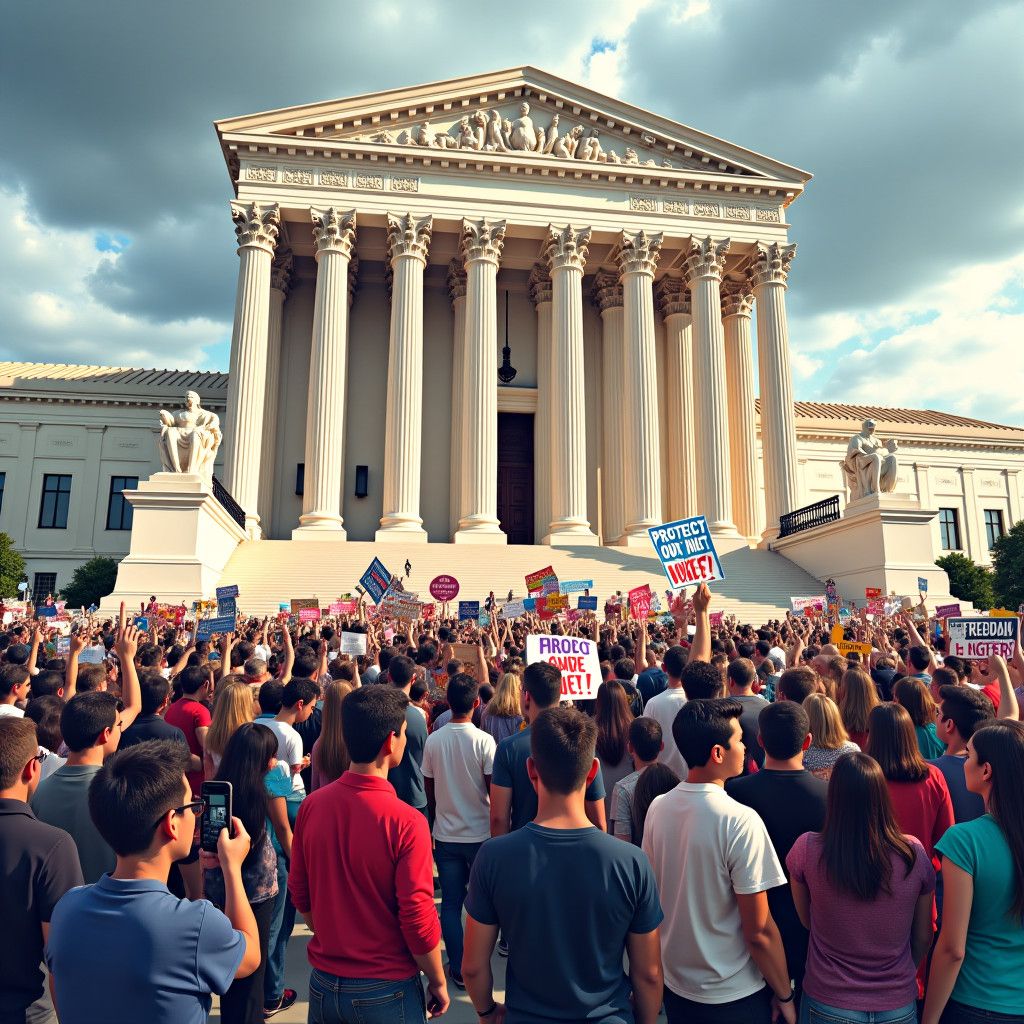In a significant legal maneuver, TikTok and its parent company, ByteDance, have requested the U.S. Supreme Court to intervene and halt a government-imposed ban on the popular social media platform. This follows a federal appeals court ruling that upheld a new law requiring ByteDance to sell TikTok by January 19, 2025, or risk being banned from operating in the U.S. This move comes at a critical moment for a platform that boasts over 170 million users in the United States.
The urgency of TikTok’s appeal highlights the fragile position the app occupies in a rapidly shifting regulatory landscape. On December 6, 2024, a three-judge panel from the U.S. Court of Appeals for the D.C. Circuit dismissed TikTok’s claims regarding free speech violations, determining that Congress enacted the law primarily to protect national security and safeguard user privacy. The ruling reinforces a growing trend where platforms with international ties face increased scrutiny and regulation.
As it stands, should the Supreme Court choose not to intervene, the ban is set to take effect just before the inauguration of President-elect Donald Trump. The new administration could potentially influence how—or if—the ban is enforced. Trump himself has indicated a willingness to reevaluate his earlier hardline stance on TikTok, stating he would consider a more favorable approach due to its perceived contribution to Republican successes among younger voters. This presents a controversial crossroads, as national security interests clash with economic and political realities.
In its request to the Supreme Court, TikTok emphasized that a delayed enforcement of the ban would be detrimental to all involved—users, content creators, and the court system. Their argument underscores a valid concern: the chaotic consequences of such abrupt regulatory changes for millions of users, including influencers and brands that rely heavily on the platform for their marketing strategies.
The backdrop to this legal battle is a narrative that has been unfolding over several years. Initially propelled into the spotlight during the Trump administration, TikTok found itself at the center of a geopolitical tension between the U.S. and China. The administration alleged that the app posed a national security threat, a claim that has stirred considerable public debate and concern.
For brands in fashion and beauty—sectors that have increasingly capitalized on TikTok’s viral capabilities—the looming ban represents an existential threat. The app has proven to be a powerful driver of sales, with many brands relying on short videos to launch products and engage with a younger demographic. As such, fashion brands are advised to devise contingency plans, strategizing how to maintain consumer engagement should the platform be rendered unavailable.
Recent data also reflects the exponential growth of TikTok as a marketing vehicle, demonstrating its impact on consumer behavior. Research indicates that 40% of TikTok users claim they discover new brands through the app, making it an essential tool for marketers targeting younger demographics. With this in mind, a ban could truncate the advertising avenues available to numerous brands, likely resulting in a significant economic fallout.
Moreover, while TikTok’s user base has flourished, concerns surrounding data privacy and user security continue to surface. This dual edge—innovation paired with potential vulnerabilities—places additional pressure on lawmakers to address the complexities of tech regulations effectively. The outcome of this legal battle may not only determine TikTok’s fate in the U.S. but could also shape the regulatory landscape for other international tech companies operating in the country.
In conclusion, TikTok’s appeal to the Supreme Court is a reflection of broader conversations regarding technology, commerce, and national security. As the deadline for compliance approaches, the decision made by the Supreme Court will ripple through various sectors, particularly affecting those that thrive on digital engagement. Stakeholders across industries will undoubtedly be watching closely, as the implications extend well beyond TikTok itself.












